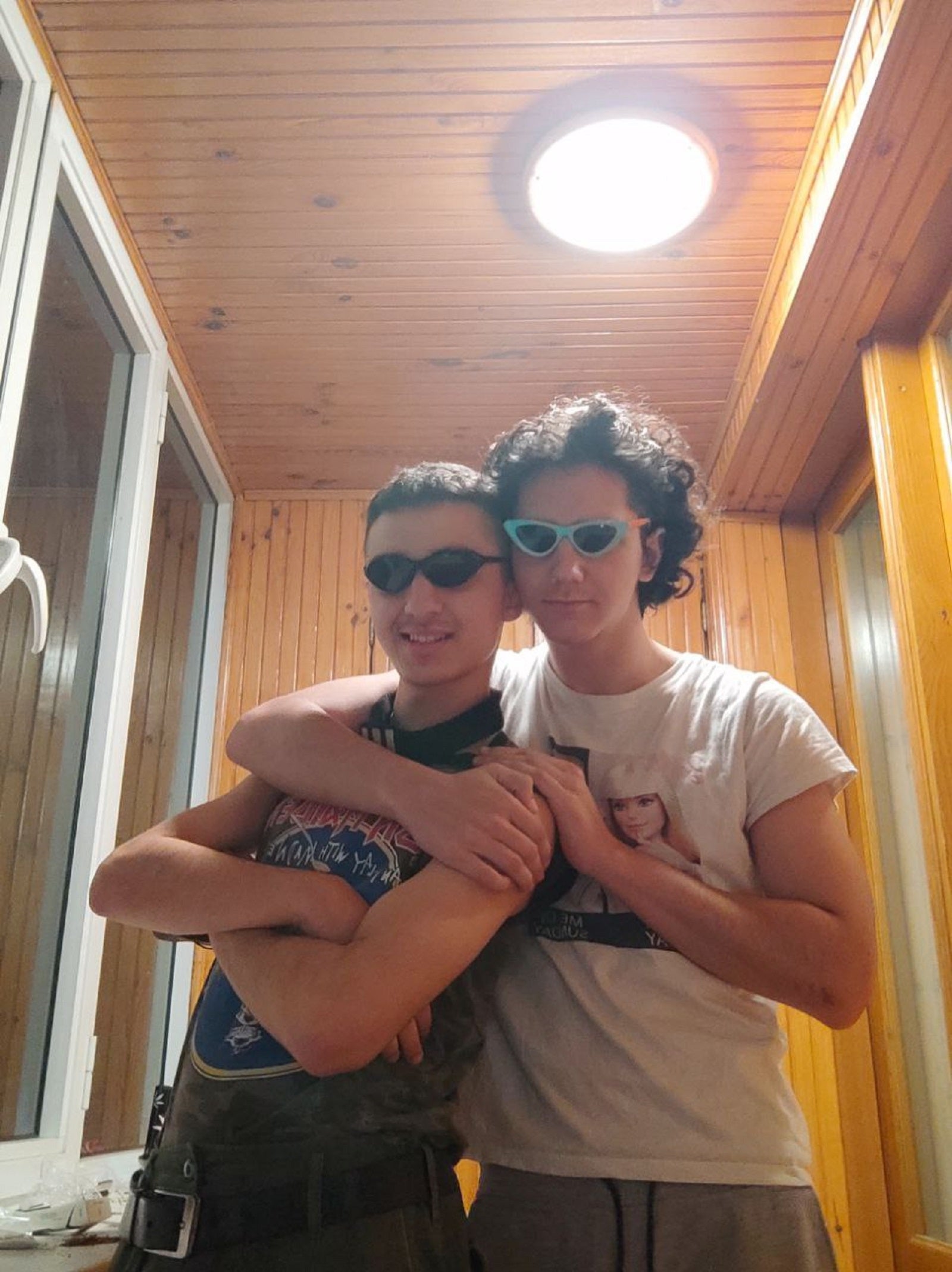Friend of Moroccan condemned to death with Britons says sentence is ‘inhuman’
Saaudun Brahim, a 21-year-old originally from Casablanca, Morocco, was sentenced to death in a Russia proxy court.

Your support helps us to tell the story
From reproductive rights to climate change to Big Tech, The Independent is on the ground when the story is developing. Whether it's investigating the financials of Elon Musk's pro-Trump PAC or producing our latest documentary, 'The A Word', which shines a light on the American women fighting for reproductive rights, we know how important it is to parse out the facts from the messaging.
At such a critical moment in US history, we need reporters on the ground. Your donation allows us to keep sending journalists to speak to both sides of the story.
The Independent is trusted by Americans across the entire political spectrum. And unlike many other quality news outlets, we choose not to lock Americans out of our reporting and analysis with paywalls. We believe quality journalism should be available to everyone, paid for by those who can afford it.
Your support makes all the difference.The friend of a Moroccan soldier condemned to death for fighting Russian forces alongside two Britons has described the sentencing as “inhuman”.
Saaudun Brahim, a 21-year-old originally from Casablanca, Morocco, was sentenced to death in a Russia proxy court alongside Britons Aiden Aslin and Shaun Pinner on Thursday.
Dmytro Khrabstov, 20, is one of a group of Mr Brahim’s friends from Kyiv’s underground club scene who have been working to raise awareness about his situation and campaigning for his release with the hashtag #SaveBrahim on social media.
Mr Khrabstov said Mr Brahim is known to friends in the Ukrainian capital as “Brian” and joined the Ukrainian military last summer when he told them he wanted to “die as a hero”.
He told me and a few other guys that he wants to die as a hero.
“(Mr Brahim) is a bright and enthusiastic guy, dreaming about the technology of the future and how he could change things,” Mr Khrabstov told the PA news agency.
“He told me and a few other guys that he wants to die as a hero.”
Responding to the death sentence passed down to the three men, Mr Khrabstov said: “There is no place in this world for execution. It’s inhuman. I (have) lost all words.”
Mr Brahim was studying at the Institute of Aerospace Technologies at the Igor Sikorsky Kyiv Polytechnic Institute when the pair met at a club in Kyiv’s Podil District in January 2021.
“Not all students who come here at 20 years old are going into the military to defend somebody else’s border,” Mr Khrabstov said.
“As he described it to me, and as I feel it myself, (he is not) a common human being who is happy doing an office job.
“He felt himself a warrior, a defender; that’s why he wanted to join the military. He wanted to become a part of it.”
Mr Brahim joined the 36th Separate Marines Brigade – the same group as Mr Pinner and Mr Aslin.
In November 2021, Mr Khrabstov waved goodbye as Mr Brahim left Kyiv on a train to the east of the country.
On February 24, Mr Brahim wrote on Instagram that his position in Mariupol was being hit with Grad multiple rocket launchers.
Mr Khrabstov said that the last time the two were in touch was the end of March.
“He told me that he was in a complicated situation and was surrounded, but that he was in a defensive position,” he said.
Two weeks later, Mr Khrabstov saw a video posted online of Mr Brahim being interrogated after his capture.
Mr Khrabstov and his friends are calling on the Ukrainian government to grant citizenship to foreigners helping to defend the country against Russian aggression.
An online petition on the issue has amassed 13,100 votes so far and points to the vulnerable position of foreign fighters from Belarus and other countries, who are less likely to be considered eligible by Russia for prisoner swaps.
“We’re trying to help our friend, help our defenders,” Mr Khrabstov said.
“They feel they need to be there, they have a sense of justice… and we need to do our job and not look (away).”
He described the media coverage of the men’s sentencing as “a difficult political game”, and said Russia has “gained too much value” from the capture of foreigners serving in the Ukrainian army.
“(The Russians) are raising their value by providing the information that they were captured, are in jail, that they could get executed,” Mr Khrabstov said.
“They are just blackmailing us.”
Mr Khrabstov described his time with Mr Brahim in Kyiv: “We met almost every weekend.
“It was common to take a car to a lake, with a company of 10 friends, have a BBQ, have some rest.
“The moment he decided to join our military, I told him that I do not have any doubt you will survive, and that I will see you at least one more time, that we will meet each other and have a good party with all of our friends.
“It’s not the thing (we should do) when I’m 20 and you’re 21.”